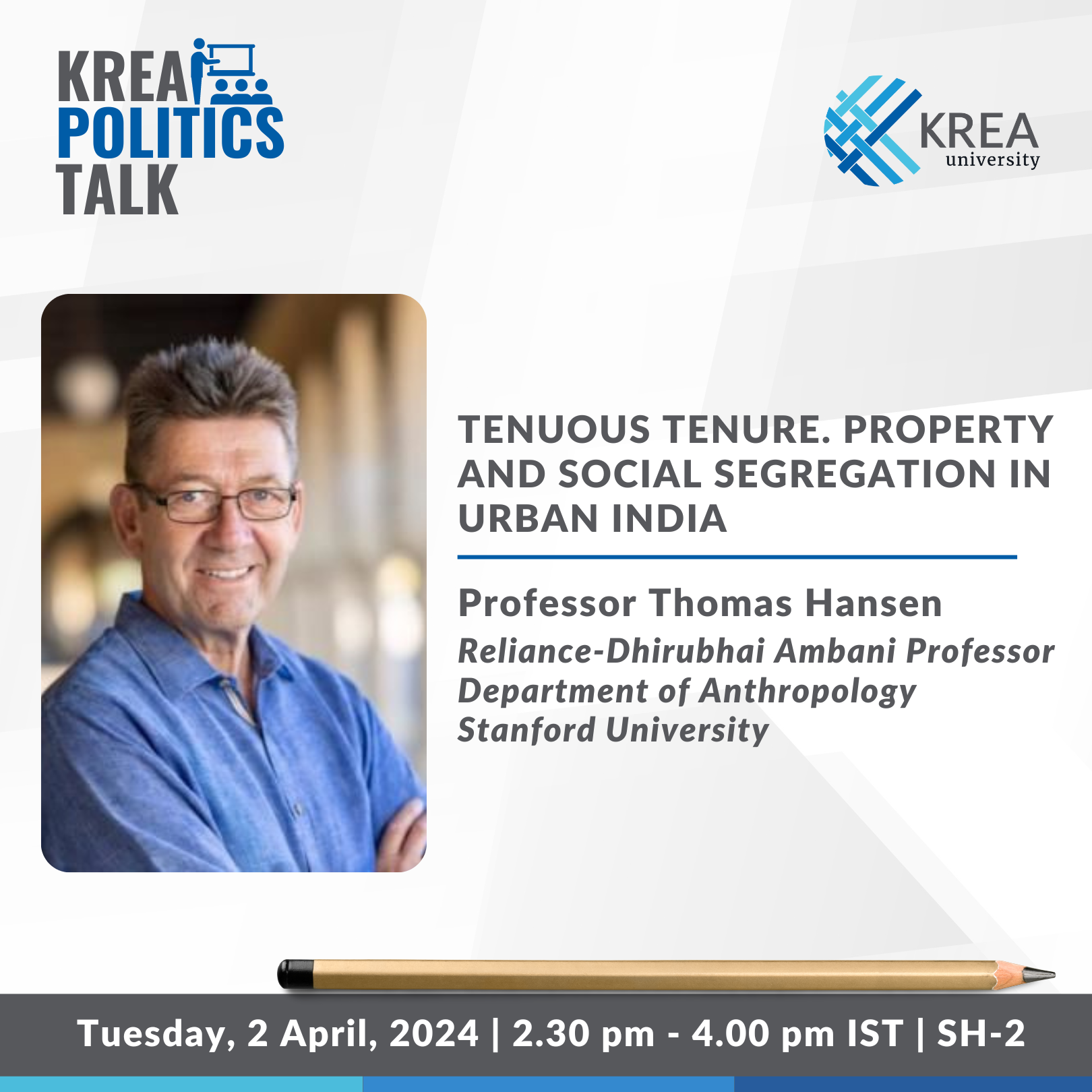A Talk on Tenuous tenure. Property and social segregation in urban India
Home » A Talk on Tenuous tenure. Property and social segregation in urban India

About the Talk
Most observers of urbanization in India will agree that social segregation along lines of caste, community and class is pervasive and deepening. But how does this process actually work and unfold? What are the conditions, constraints and decisions that re-produce these outcomes? Based on material from one mid-sized city in Maharashtra (Aurangabad), the speaker will explore the complex interplay between property regimes in urban and rural India; the prevalence of ‘land-invasions’; the pervasive reality of ‘usufruct property’ – property held but not owned; and the fundamental insecurity around land tenure and property rights in the face of changing zoning laws and the administrative fiat of the state.
Thomas Hansen is the Reliance-Dhirubhai Ambani Professor of Anthropology. He founded and directed Stanford’s Center for South Asia from 2010 to 2017.
Hansen is an anthropologist of political life, ethno-religious identities, violence and urban life in South Asia and Southern Africa. He has multiple theoretical and disciplinary interests from political theory and continental philosophy to psychoanalysis, comparative religion and contemporary urbanism.
Much of Professor Hansen’s early fieldwork was done during the tumultuous and tense years at the beginning of the 1990s when conflicts between Hindu militants and Muslims defined national agendas and produced frequent violent clashes in the streets. Out of this work came two books: The Saffron Wave. Democracy and Hindu Nationalism in Modern India (Princeton 1999) which explores the larger phenomenon of Hindu nationalism in the light of the dynamics of India’s democratic experience, and Wages of Violence: Naming and Identity in Postcolonial Bombay (Princeton 2001) which explores the historical processes and identity formations that gave rise of violent socioreligious conflict and the renaming of the city in 1995.
In the early 2000s, Professor Hansen pursued a detailed study of religious revival, racial conflict and transformation of domestic and intimate life from the 1950’s to the present in a formerly Indian township in Durban, South Africa. This resulted in a book entitled Melancholia of Freedom. Social Life in an Indian Township in South Africa (Princeton University Press, 2012).
In addition to these ethnographic engagements, professor Hansen has pursued a number of theoretical interests in the anthropology of the state, sovereignty, modern convictions, religion, violence and urban life in the Global South. Hansen is currently finishing a book on the global spread of notions of popular sovereignty and the rise of illiberal democracy. He is also engaged in a long term historical and ethnographic investigation of ‘vernacular urbanism’, that is, the dynamics of social segregation and community-based capitalism in the fast-growing provincial cities across South Asia.
To register for this event please visit the following URL: →
Event Start Date:
To register for this event please visit the following URL: →